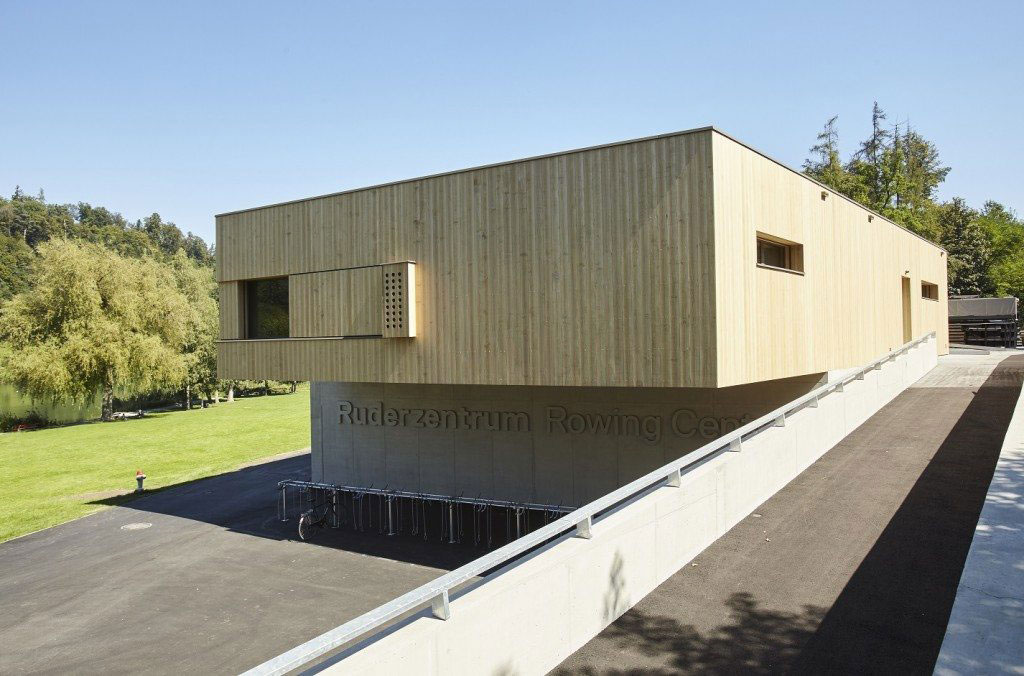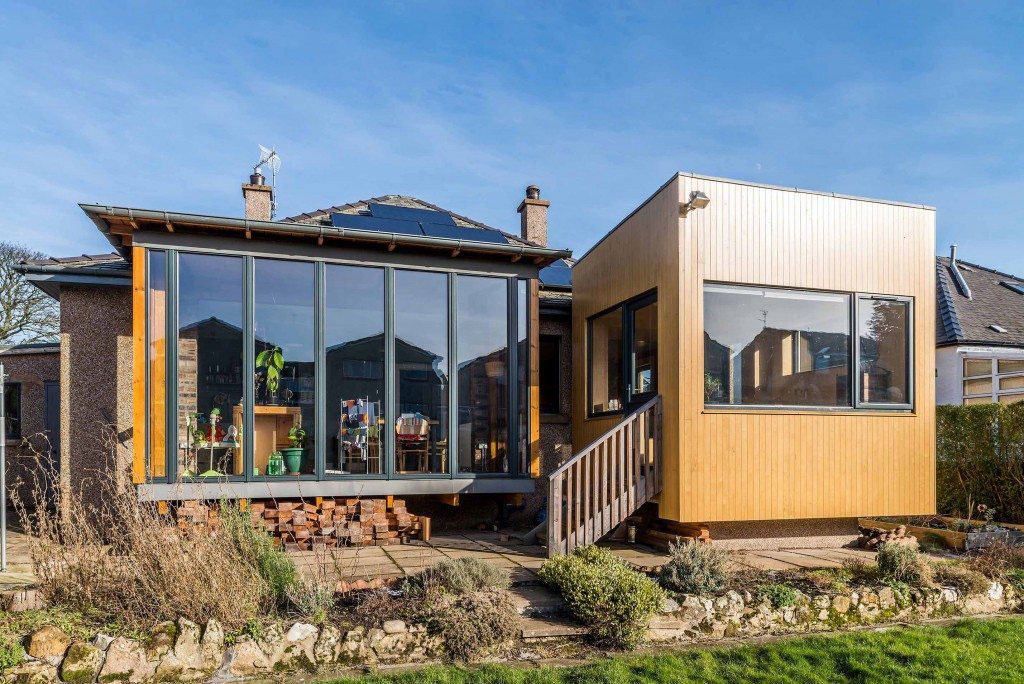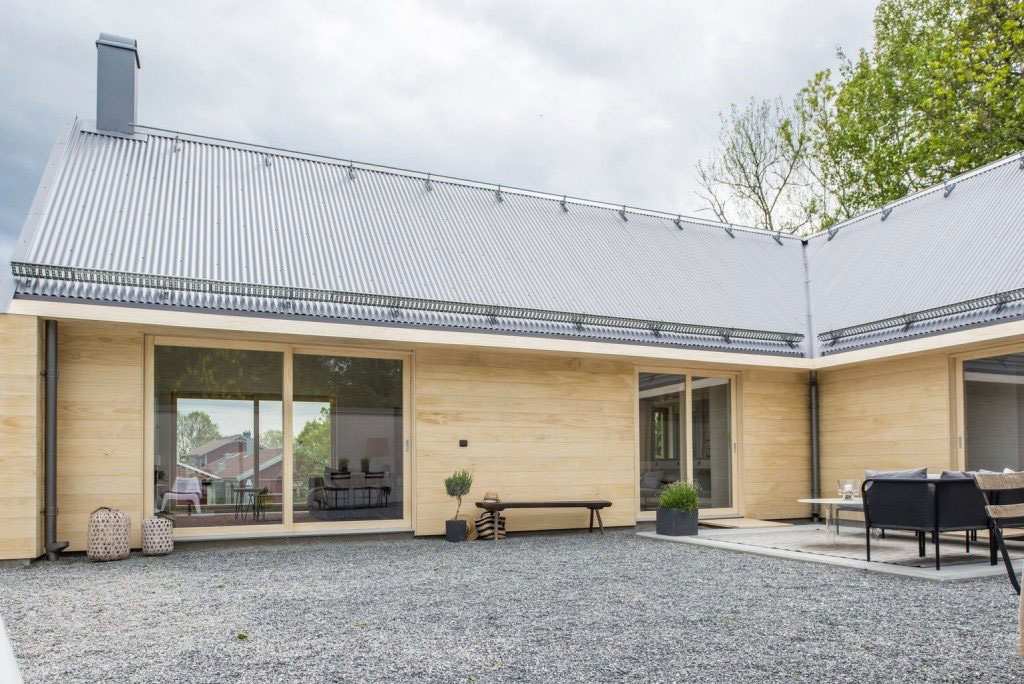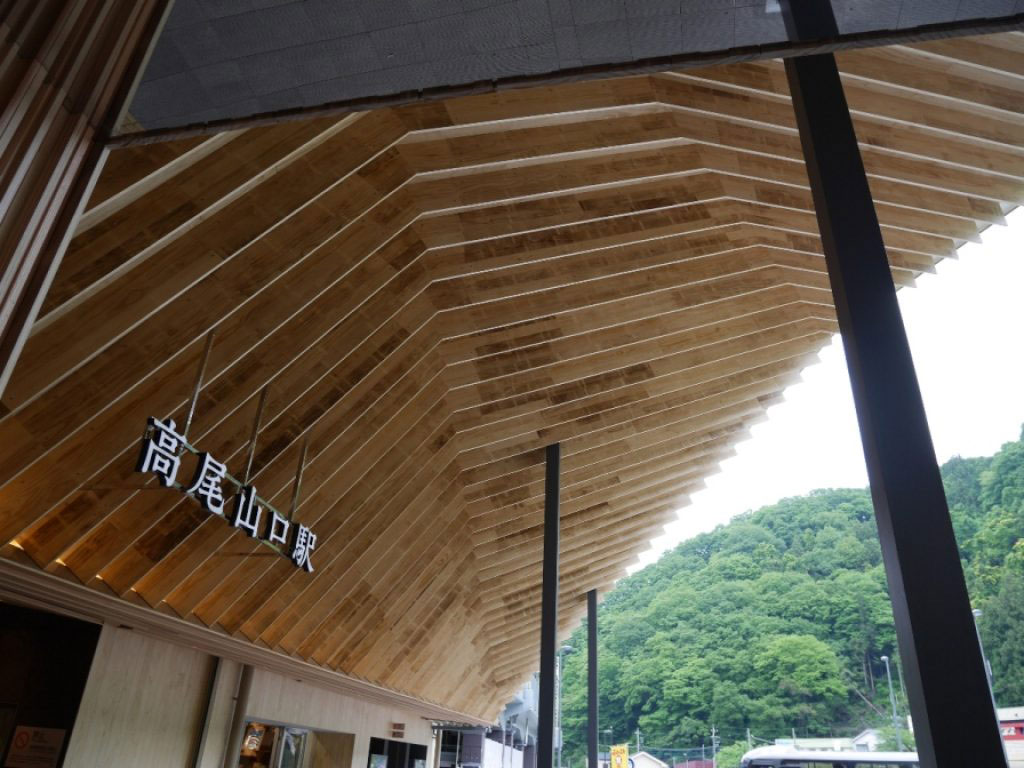The idea of cladding buildings with wood is not a new one, but in recent years technological advancements have made it increasingly cost effective. Indeed, cladding external walls for warmth and protection from wind and rain has historically been a construction mainstay. The recurring issue with raw wood cladding has always been its susceptibility to water ingress and rot, requiring frequent maintenance and care.
The process of acetylation by Accsys Technologies has created a wood product which is natural, durable and sustainable. Most importantly, it requires virtually no maintenance and does not rot even in the wettest and coldest conditions.
The demand for wooden cladding across both commercial and residential projects has increased in recent years as developers, architects and home owners increasingly looking for a natural aesthetic.
Leading wood product Accoya® is considered by many to be the preferred wood for the job with installers, contractors, builders and DIY enthusiasts specifying the product for its easy maintenance, long lifespan, 50 year warranty and exceptional environmental credentials.
Manufactured by Accsys Technologies, the patented Accoya production process takes sustainably-sourced, fast-growing wood and enhances it through acetylation to create a modified and ecologically friendly wood that matches or exceeds the durability, stability and beauty of the very best tropical hardwoods.
Accoya is therefore one of the best quality cladding products on the market, with examples from around the world demonstrating its undeniable draw.
Accoya rows to success on Swiss lake
Accoya was chosen to clad a two-storey rowing centre situated on the Rotsee, a natural rowing lake in Switzerland.
The rowing centre, located within the Naturarena Rotsee rowing development, was designed by Swiss architects Andreas Fuhrimann Gabrielle Hächler Architekten. The centre was clad with Accoya to both reflect the natural woodland surroundings and form a facade able to cope with extreme conditions. Completed in 2016 the two-storey rowing centre sits on the still waters of the Rotsee which is nicknamed “Lake of Gods”.

Accoya Supports Scottish Sustainable Contemporary Renovation
Accoya was used extensively in the refurbishment of a sustainably re-modernised family home in Scotland. Originally a 1930’s bungalow, the Edinburgh property was given a new lease of life after being extended using carbon friendly materials including Accoya.
Owner Dr Robert Hairstans, Head of Edinburgh Napier University’s Centre for Offsite Construction + Innovative Structures (COCIS), chose Accoya to clad the exterior of his family home and to provide the external support beams of a cantilevered glazed kitchen extension. Tasked with sourcing low carbon materials for the build, Dr Hairstan’s appointed architect David Blaikie opted to use Accoya, which is 100% non-toxic and Cradle to Cradle Gold certified.

Accoya put to the test in Swedish house project
Accoya was used in the creation of a bespoke family home in Sweden. The home, which is located in the north of Stockholm, was designed by Kalle Lilja of local construction and joinery firm Rejal Bygg.
Kalle wanted to create a luxury family home for the property market which would push the boundaries of design and innovation and would require as little maintenance as possible. To deliver the project he turned to Managing Director of CEOS, Urban Stenevi and together they decided to use Accoya for the project. Kalle was intrigued by the modified wood product and wanted to push it to its limits so he could realise the product’s full potential.

Mountain train station chooses Accoya to create hiking sanctuary
Accoya was used to renovate a busy Japanese train station at the foot of Mount Takao, one of Tokyo’s most popular hiking spots. Accoya was used for the station’s cladding and exposed roof area.
Takaosanguchi station, the hub through which most Mount Takao visitors pass, offers travellers direct access to one of the closest natural recreation areas to central Tokyo. Renowned Japanese architect Kengo Kuma set out to create a sanctuary for weary hikers and residents in the area, renovating the station in spring 2015 using Accoya for cladding and on the station’s exposed roof.

With years of research and product development, Accoya is modified through to its core to make it one of the most advanced wood products on the market today.
Laura Keily, Head of Marketing at Accsys Technologies said: “The patented acetylation process that Accoya goes through ensures that it is the most advanced wood on the market, surpassing composites, and even some hardwoods, for its durability, stability and green benefits.
“Accoya wood is also indigestible to a wide range of insects and guaranteed for 50 years above ground and 25 years in ground or freshwater contact and is designed for minimal maintenance”.
Accoya is available world-wide through a network of local distributors.
